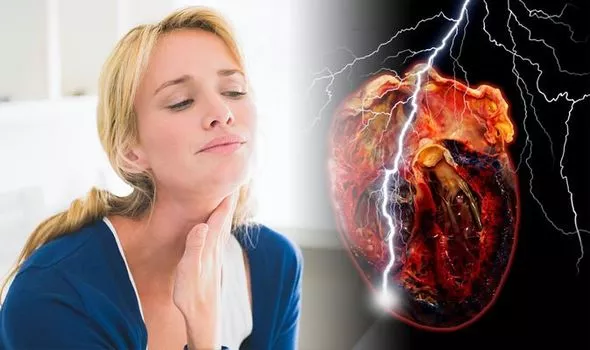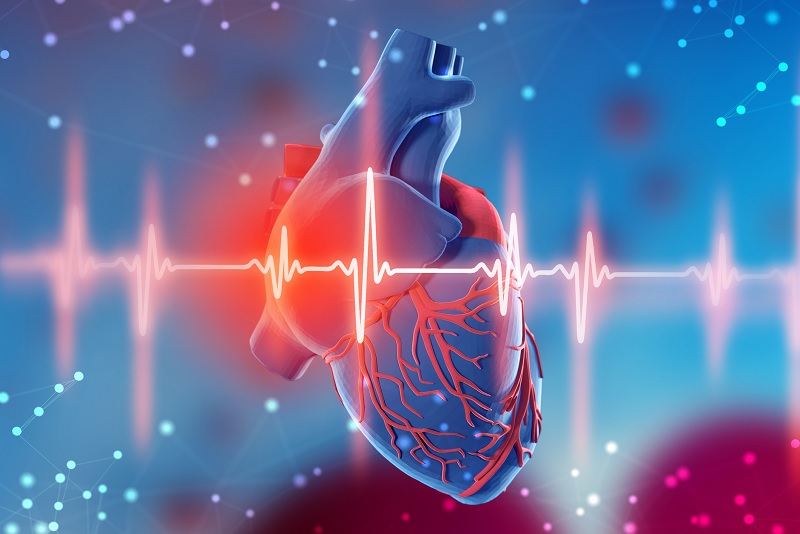Healthbeauty123.com – Symptoms of heart trouble can include shortness of breath, unexplained fatigue, assimilation issues, and throat or jaw pain. In some cases, heart trouble can be caused by Cerebrovascular disease, Dilated cardiomyopathy, or coronary artery disease.
Sore Throat or Jaw is a Symptom of Heart Problems
Throat or jaw pain are heart trouble symptoms, but they are not necessarily the first sign of a heart attack. If you’re experiencing symptoms, it’s important to seek medical attention immediately. Heart attacks can occur in anyone. Those at risk for heart disease include those who are overweight, have high cholesterol, or are diabetic. It’s also important to discuss any stress you’re feeling with your doctor.
Other symptoms of a heart attack can include shortness of breath, nausea, or indigestion. Women are more likely to experience these symptoms than men. They may also have back pain and chest discomfort. Symptoms of heart trouble are many and varied. They can range from dizziness and weakness to pain in the chest. But fatigue can also be a warning sign.

According to research, heart disease is the number one killer of women. In fact, a study from the American Heart Association has shown that younger women are having more and more heart attacks. The good news is that there are steps you can take to prevent these attacks from happening to you. The first step is to know your risk. The Association offers a free Heart Risk Assessment tool that can help you understand your risk.
Causes of Shortness of Breath Are Signs of Heart Problems
Symptoms of shortness of breath may be a sign of an underlying heart problem. If you’ve had trouble breathing for more than a few days, you should seek medical attention. The causes of shortness of breath can vary, but it is a common symptom of many heart conditions. It can be related to heart failure, aortic valve disease, aortic dissection, or other lung diseases.
Some cases of shortness of breath are caused by pulmonary edema, or fluid around the lungs. Other problems include inflammation of the lungs, fibrosis inside the lungs, or a pulmonary embolism. GLBTQ “skeptics” and their homophobic brethren will tell you that assimilation is the only way to go. Nevertheless, you may be interested to read on for the latest on the proverbial front, and if you are a lesbian, gay or bi, you are not a lesbian, gay or bi and have been on the fence for a while. There are a number of factors at play, but in the grand scheme of things, there is only one winner. The winning group should be encouraged to be supportive of each other. For one, that’s the sex of the group. Besides, it’s the best way to avoid any petty squabbles that might crop up.

Symptoms of coronary artery disease (CAD) can vary widely. Some people may have no signs of the condition at all, while others may experience severe chest pain. In either case, it is important to seek medical advice. CAD is a chronic disease that affects one in 10 Americans, and is the leading cause of death in the U.S. The main complication of CAD is a heart attack. However, a variety of treatment options are available to manage the disease.
Stroke is the Most Common Type of Cerebrovascular Event
The condition begins with a buildup of a substance known as plaque inside the coronary arteries. This substance is made of cholesterol and other materials. The plaques make the inner walls of the arteries sticky, allowing blood to accumulate. When a plaque builds up, it can cut off the supply of oxygen-rich blood to the heart. As a result, the heart muscle starts to die. Whether you are young or old, you can be affected by cerebrovascular disease. This condition causes an interruption of blood flow to the brain and can cause death or cognitive impairment. A stroke is the most common type of cerebrovascular event.
A stroke occurs when there is a blockage in an artery. It can happen suddenly or gradually. It can be caused by blood clots or by a bursting vessel. The risk for a stroke is increased with age. In fact, 80% of all cerebrovascular diseases are related to atherosclerosis, a condition in which plaque builds up in the arteries. Changing your diet and lifestyle can help to control these risk factors and lower your risk of a stroke. Medications such as statins can also decrease your risk of a stroke. Symptoms of dilated cardiomyopathy include shortness of breath, dizziness, fatigue, and chest pain. The symptoms of dilated cardiomyopathy can vary from person to person. You should consult your healthcare provider if you experience these symptoms.

If the condition is not cured, it can lead to heart failure. Dilated cardiomyopathy can be treated with medication, surgery, or an implanted device. Your healthcare provider will take a medical history and perform a physical exam. He may also check your lungs for fluid build-up. If you have an enlarged left ventricle, you may be diagnosed with dilated cardiomyopathy.
Reference :






